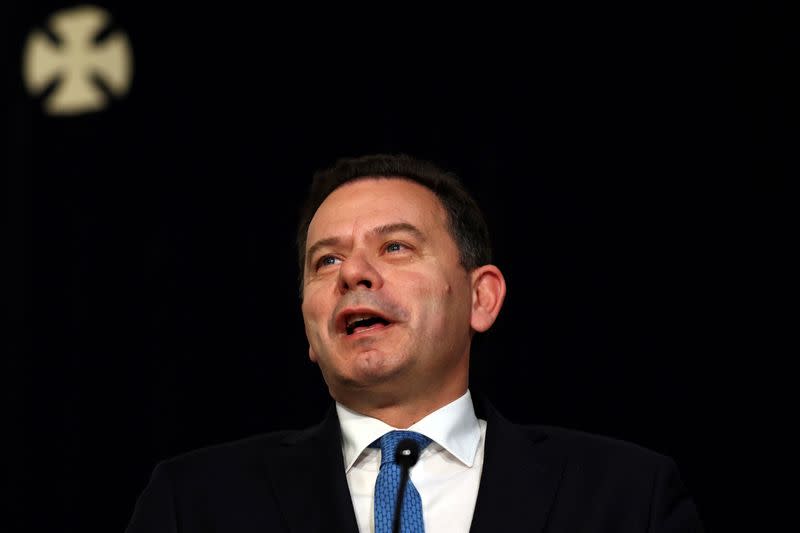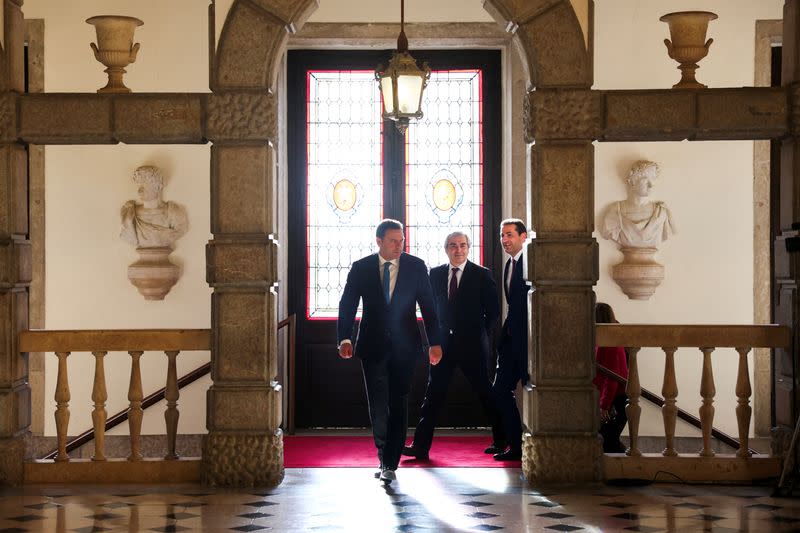Portugal's minority government sworn in, stability doubtful
By Sergio Goncalves and Catarina Demony
LISBON (Reuters) -Portugal's centre-right minority government of Prime Minister Luis Montenegro was sworn in on Tuesday amid doubts it can survive beyond this year as it faces the most fragmented parliament in 50 years of democracy.
The Democratic Alliance (AD) coalition won the March 10 election by a slim margin over the outgoing Socialist Party (PS).
Montenegro said the government was determined to govern until the end of its four and a half-year mandate and promised to act with "humility, patriotic spirit and capacity for dialogue", while demanding the same from the opposition.
"The (expected) investiture in parliament (next week) can only mean the opposition will respect the principle of letting us work and execute the government's programme," he said.
With just 80 seats in the 230-seat legislature, the AD will need the support of either the far-right Chega party, which quadrupled its parliamentary representation to 50 lawmakers, or the centre-left PS, which secured 78 seats, to pass legislation.
"The odds are against political stability as the government has one of the smallest relative majorities in democracy and faces fierce opposition from a stronger ultra-right," said Andre Freire, political scientist at the ISCTE research university.
Chega, an anti-immigration party whose fast rise reflects a political tilt toward right-wing populism across Europe, has demanded a government role or a long-term agreement to support the AD, but Montenegro has repeatedly refused to even negotiate.
Montenegro's precarious position was exposed last week when Chega rejected his candidate for parliamentary speaker, who was ultimately elected with PS help. The PS warned, however, that such support was a one-off to unblock parliamentary activities.
Montenegro has promised tax reductions for families and companies, higher pensions and wage hikes for police, teachers and doctors. He can push some of these measures through parliament with opposition support but the key piece of legislation - and his first big test - will be the 2025 budget.
Failure to approve a budget has in the past habitually resulted in early elections in Portugal, and analysts expect the AD will be forced to negotiate the spending plan, and possibly other measures, with the PS.
"Much will depend on the mastery and skill in negotiations, but I don't know if it will be enough to approve the 2025 budget," Freire said. He added that any obvious AD-PS alliance could boost Chega's clout in any future election as the sole leader of the opposition.
"The PS ... must be clear about its attitude: be a democratic opposition or a blockade," Montenegro said.
(Reporting by Sergio Goncalves; editing by Andrei Khalip, Mark Heinrich and Mark Potter)


